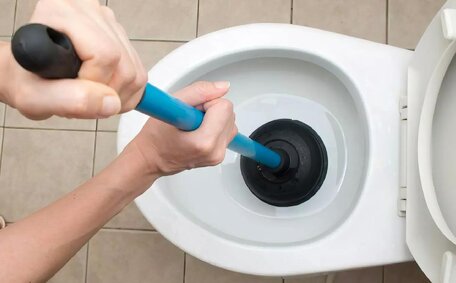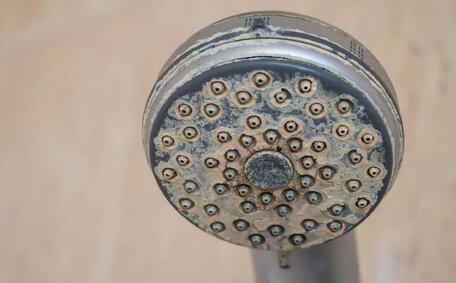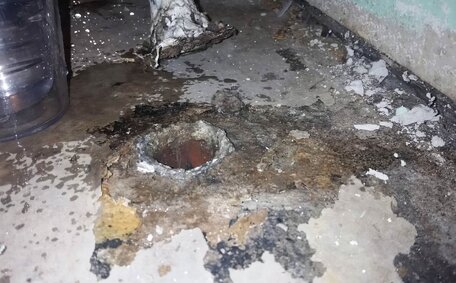Understanding Key Components of a Gas System
Essential components of gas plumbing systems are gas lines, fittings, valves, appliances, and a regulator.
The gas lines convey the gas supply from the gas main directly to the property. Fittings connect the pipes together, while valves control gas flow to appliances. Gas appliances such as gas hot water systems, stoves and dryers utilise the gas for heating or cooking.
A gas regulator is a critical gas safety component, reducing high incoming gas pressure to safe levels for appliance use. Regulators contain safety features that terminate flow at the gas meter when pressures become dangerously high. They require proper installation and maintenance by licensed gas fitters to remain functional.
In Australia, the primary type gas LPG used includes LP gas in cylinders/tanks, and natural gas transported through underground pipelines by utility providers. In the Emu Plains area, both LPG and natural gas systems in use gas for heating water, cooking food, drying clothes and more for local homes and businesses.
Common Signs of Gas Fitting Issues
Certain signs signalling a possible problem your gas fittings might have include:
- The smell resembling rotten eggs, an unmistakable warning of a hazardous gas leak
- Hissing or whistling noises emanating from gas pipes or a flickering pilot light on appliances
- Pilot lights frequently blowing out
- Flames burning yellow or orange instead of blue from gas hot appliances
- Appliances like ovens and the gas hot water system exhibiting signs gas leaks by taking longer to ignite or heat up
- Exorbitant gas bills could signal problems with your hot water systems, despite no evident alterations in your usage habits
These problems often relate to your plumbing service safety, frequently stemming from situations where gas leaks can occur, alongside blockages in pipes or fittings, faulty valves, or appliance defects. If disregarded, such symptoms can lead to outcomes such as carbon monoxide poisoning, fires, and explosions, all grave breaches of the safety act.
To ensure safety, swiftly address any issues by calling a gas fitter for proper repairs. Turn off the gas at the mains and ventilate the area if you can smell gas, Then call a qualified gas fitter plumber. When you need gas plumbing repairs, promptly contact a licensed gas fitter for urgent attention and compliance assurance over your entire setup.
Gas Leaks
Leaks in gas piping are a critical issue demanding immediate attention. Leaking any gas, whether natural gas or LPG, emits a smell rotten eggs, acting as a vital warning signal. It’s paramount to need know about gas for safety that carbon monoxide, an odourless yet lethal gas, can also seep out due to faults, thereby endangering lives.
Detecting gas odours in your premises is crucial; it requires ceasing the use of electrical switches and appliances.
Evacuate the property, leaving doors open as you exit. Call gas emergency services on 000 immediately to request the fire brigade and their swift response. Stay clear of the affected areas until authorities come out to conduct safety checks and isolate the leak.
Attempting DIY leak repairs is never advisable due to explosion dangers. Only a very professional plumber gas specialist possesses the proficiency required to track down leaks and perform necessary repairs.
For problems gas line repair, the use of specialised gas leak detection gear coupled with methods such as applying soapy water during pipe pressure testing after mending faults is standard. Stricter measures, such as the issuance of a gas compliance certificate, ensure the safety of your gas fitting system in the wake of major leaks.
Both natural gas and LPG leaks can escalate quickly if not addressed promptly. Make sure your family’s safety is the number one priority by acting decisively at even a faint whiff of gas. Report issues rapidly before catastrophic shut down and harm can eventuate.
Blockages in Gas Lines
Blockages in gas lines can disrupt flow and pose hazards. Causes include corrosion, accumulation of debris, installation errors, ground shifts, and general wear and tear over time.
Common signs gas installation leaks or line blockages might present include:
- Pilot lights frequently blowing out
- Yellow, orange, or inconsistent flames
- Appliances like ovens, dryers and heaters igniting slowly or not at all
- Evident drops in water pressure
Should you anticipate a blockage affecting your hot water system, perform a visual inspection along the route of your gas lines. Look for kinks in your hose or debris built up at valves, joints or appliance connectors. Note these areas often accumulate pipe scale or rust over decades of use.
Do not attempt to clear blockages yourself due to the risk of explosion; instead, Contact a professional service to assess and resolve gas line blockages. They can determine if pipe repairs, replacements or a full system inspection is necessary to guarantee safety.
Valve and Connector Defects
Gas valves and connectors are prone to wear tear issues over time. This includes thread damage, seal failure, metal fatigue and general corrosion. Connector types like old brass fittings, semi-rigid lines, and some quick connect devices are at higher risk.
Common signs of defective gas valves or connectors include:
- Visible corrosion and cracks
- Loose fittings that move or shift
- Weeping, hissing sounds or odours
- Difficulty opening or closing valve dials
These defects can result in dangerous gas leaks, ignite fires, and cause appliance malfunctions. Schedule an annual inspection of gas valves and connectors for compliance. This preventive measure zeroes in on all your gas issues promptly before they worsen.
Similarly, upgrading any aged or risk-prone connectors, like compression fittings or semi-rigid lines for your gas appliances, is essential. Our licensed technicians can advise on measures for gas fitting installation to prevent gas leakage and inform which gas certified fittings suit your appliances.
The Dangers of Faulty Gas Fittings
Never ignore faulty or damaged gas fittings due to the extreme dangers they present. Gas leaks and explosions from unsafe fittings can cause severe injuries, fires, property damage, or even prove fatal.
More than 500 serious gas-related incidents occur annually in Australian homes, often with devices like water heaters, requiring professional help. Historical cases include a 2015 Mount Waverley home explosion from a gas leak which left one resident in a coma. In 2021, a gas heater leak killed an elderly resident at a Newcastle aged care facility.
Common dangers from faulty gas fittings include:
- Gas Leaks disrupting your water supply and leading to poisoning or explosions
- Carbon monoxide exposure causing unconsciousness
- Fires spreading rapidly through leaking gas
- Appliance malfunctions that our team can investigate for potential ignition of gas
- Loss of gas pressure impacting heating and hot water
Secure your home with routine gas and water system inspections that meet safety standards. Our licensed professionals will service your fittings and pipes, ensuring all work is done punctually, advising when to turn off gas sources to meet rigorous compliance criteria. We also provide same day leak detection services in case of any problems.
Do not delay repairs; faults can quickly escalate, risking your home’s safety. Prioritise safety via proactive maintenance for total gas system peace of mind.
Historical cases include a 2015 Mount Waverley home explosion from a gas leak which left one resident in a coma Installation and Maintenance
Having gas fitting work performed by qualified professionals is critical for safety and compliance with Australian standards. Licensed professionals in our gas fitting service undertake extensive training and routinely maintain accreditation to carry out installation, repairs and maintenance.
Countless clients gave me glowing feedback for the trustworthy local expertise of Emu Plains Plumbing at 1300 349 338 for their thorough gas fitting needs. Their experienced, licenced technicians can:
- Implement new gas installations with cutting-edge appliances and fittings that comply with current codes
- Conduct leak detection and pressure tests
- Repair or replace aged or damaged fittings
- Clear any blockages in gas lines
- Provide compliance certificates proving system safety
Regular professional safety inspections help identify and promptly address leaks. Attending to minor faults is key to preventing breakdowns in equipment like the hot water unit and averting significant future repairs.
Hiring expert plumbers ensures your system’s operability and protects your home from dangerous malfunctions. I highly recommend not taking any chances with plumbing problems—it’s prudent to let specialists navigate this intricate field.
How to Troubleshoot Gas Fitting Issues
Due to the risks, always contact a professional to troubleshoot gas fitting problems. Yet, you can easily undertake a secure method to identify plumbing issues through a visual examination with these steps:
- Listen and smell for any hissing or the 'rotten egg’ gas leak odour near appliances and pipe joints
- Check burner flames are blue (yellow suggests blockages)
- Ensure pilot lights are lit and appliance dials turn easily
- Visually inspect pipes, connectors and valves for cracks or corrosion
- Note if appliance performance is inconsistent or slow
If irregularities are detected, immediately shut off the gas and seek professional repair. Ventilate the area and call Emu Plains Plumbing on 1300 349 338 or emergency services if concerned. Never try lighting pilot lights yourself, especially near gas sources.
Recognising problems like a faulty gas valve can prompt quick action, although DIY troubleshooting is limited. Should fittings necessitate pressure assessments, leak analysis, repairs, or swaps, do not waver to call a repair technician.
When to Call a Professional Gas Fitter
It’s crucial to enlist a professional to repair gas systems for various scenarios that impact your gas system’s safety and optimal functioning:
- If you can smell gas or suspect any kind of leak
- If appliance pilot lights repeatedly go out
- When appliances produce yellow/orange flames or ignition is very slow
- If you hear hissing noises from pipes or appliance connectors
- When gas bills are suddenly much higher without usage changes
- For any compliance checks, repairs, installations or annual servicing
Our service covers all aspects of plumbing and gas issues, regardless of their extent. With specialised tools for leak detection and pressure testing, we can accurately pinpoint and resolve problems - including line blockages and valve or connector faults.
As gas issues potentially turn hazardous rapidly, never hesitate to email or call us immediately for assistance. We respond urgently to guarantee the ongoing safety and performance of your system.






